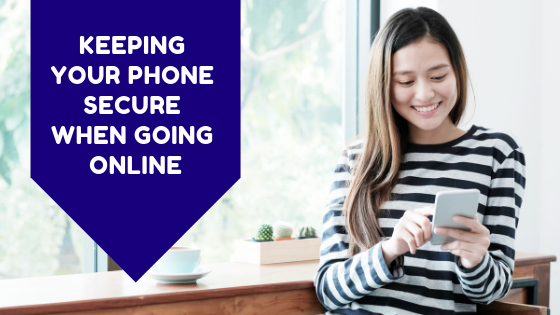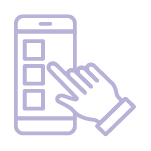
A person’s phone is one of their most important assets with many people not being able to go an hour in a day without checking their messages, missed calls, emails or social media updates. But because so much information is stored within your phone, scammers and other bad people online or in person might want to gain access to your phone’s data.
Many people store more personal data on their phones than they do on their PC. So protecting them is important. Here are some simple tips and tricks you can do to help you secure one of the most important items in your daily life.
- Use passwords, pins, swipe patterns or fingerprints: Some people have their phones completely unlocked at all times. All you need to do is swipe the screen and you are in. This is convenient, but not great at all if someone steals your phone. Using something like your fingerprint, a swipe pattern or a pin to log into your phone makes it hard for someone who doesn’t know how to unlock your phone to unlock your phone.
- Use Anti-Virus or Malware software: Many people use anti-virus or malware software on their computers, but they neglect using it on their phones. There is malware and viruses which can affect phones. If a phone is not protected and someone downloads an app or visits a website on that phone and that app or website is filled with malware or viruses, then that phone is going to be infected. Anti-Virus or Anti-Malware software can be purchased from well-known brands in the industry such as Norton, Trend Micro or Malwarebytes. Many of these companies have mobile specific products to protect people’s phones. They’re great to look into if you are wanting to keep your phone’s data safe and secure.
- Keep your phone software up to date: Phone software updates and app updates are sometimes quite big to download and many people put them off. But these updates can be important for keeping your phone secure. It is common for system software updates for phones and also updates for apps on phones to contain security patches to fix vulnerabilities that may have been present. Keeping your phone up to date can help to stop you from walking around all day with a vulnerable device.
- Leave your Bluetooth off: Bluetooth is great for keeping many of your devices connected, but leaving it on when out in public could mean that other people might be trying to connect to it. Plus, if you’ve left it on and you’ve not been keeping your phone up to date then you could be more vulnerable than you may think. Recently Lifehacker reported on some Bluetooth vulnerabilities which you can read about that right here.
- Keep your Phone’s data safe: People take hundreds of photos per month these days and were they to lose their phone, all those memories could be lost. It’s a good idea to back up your phone to your PC or to the cloud. If your phone is backed up to your PC or the cloud and it is then lost or stolen, you won’t lose all your favourite memories as well as your phone.
- Being careful with public Wi-Fi: Public Wi-Fi is great, but it’s also not very secure. Stay away from doing your banking or anything else you want to be private as you don’t know who else could be on the same Wi-Fi network as you and what they are able to see there. Always remember that public Wi-Fi networks are public places and they offer little privacy for you and your device.
- Reset your phone before you sell it: You do not want to just give your phone away with all your data on it for someone else to have. Reset your phone by going into the settings so it is back to its factory settings and then also remove the sim card before you give it away.
Sources: Stay Smart Online



